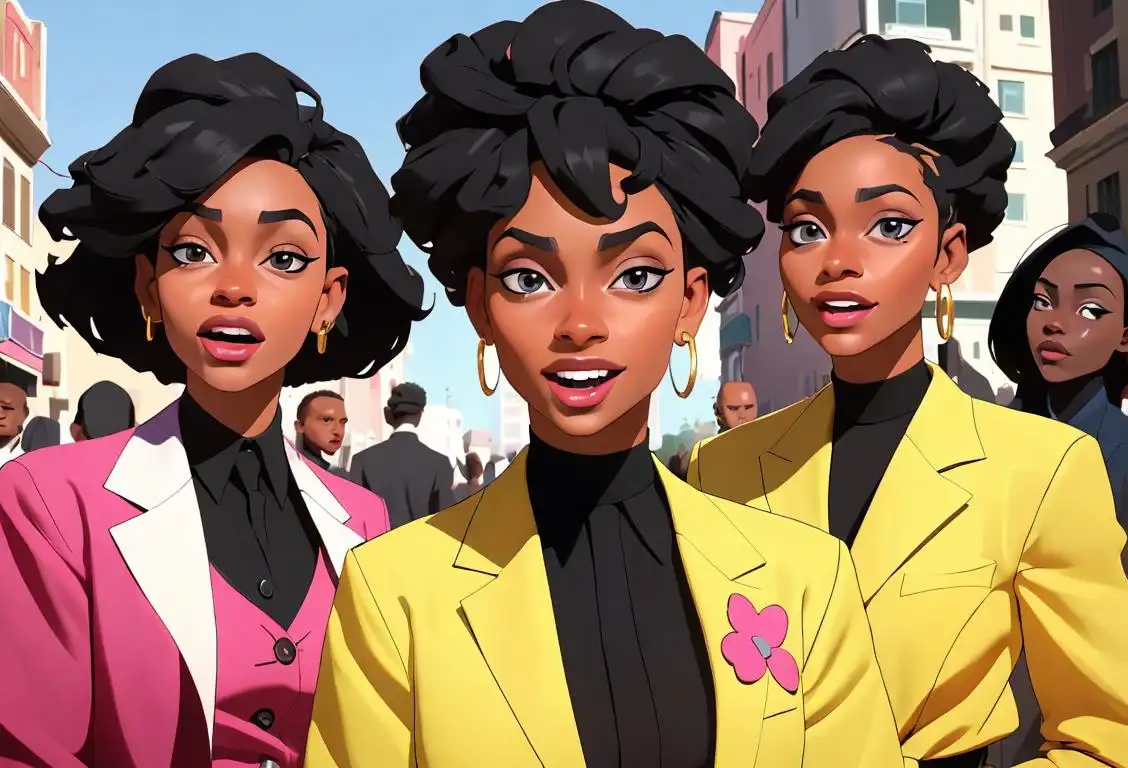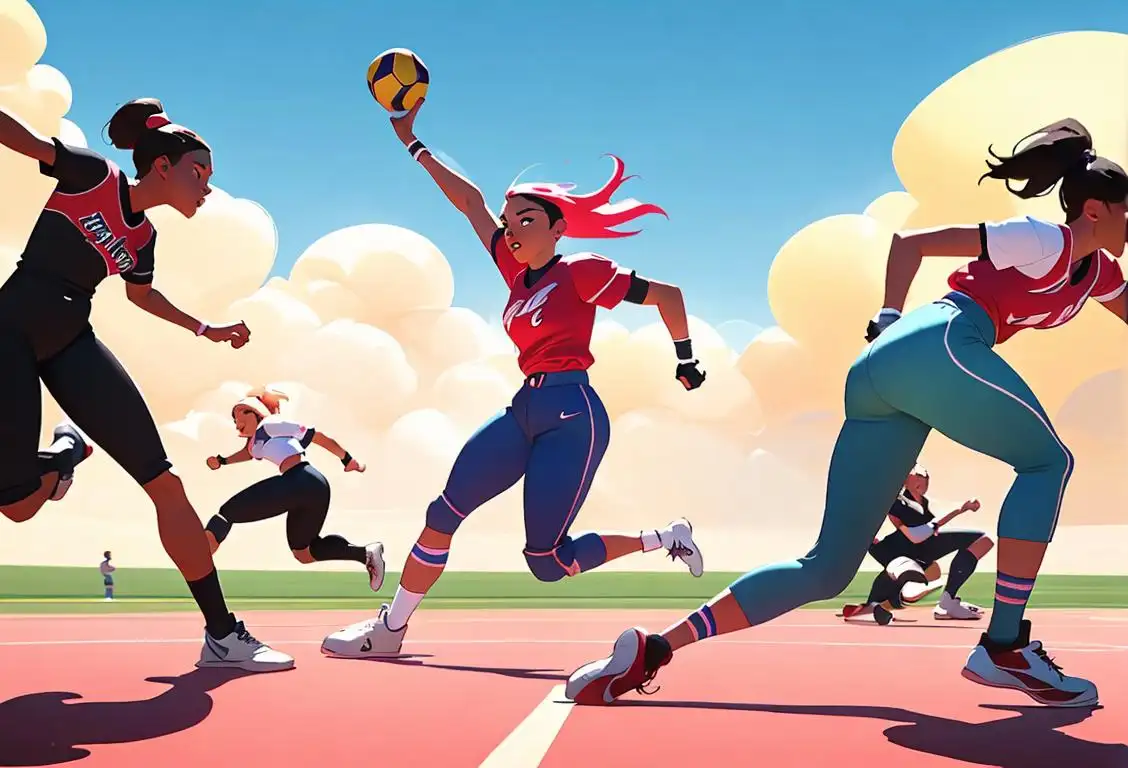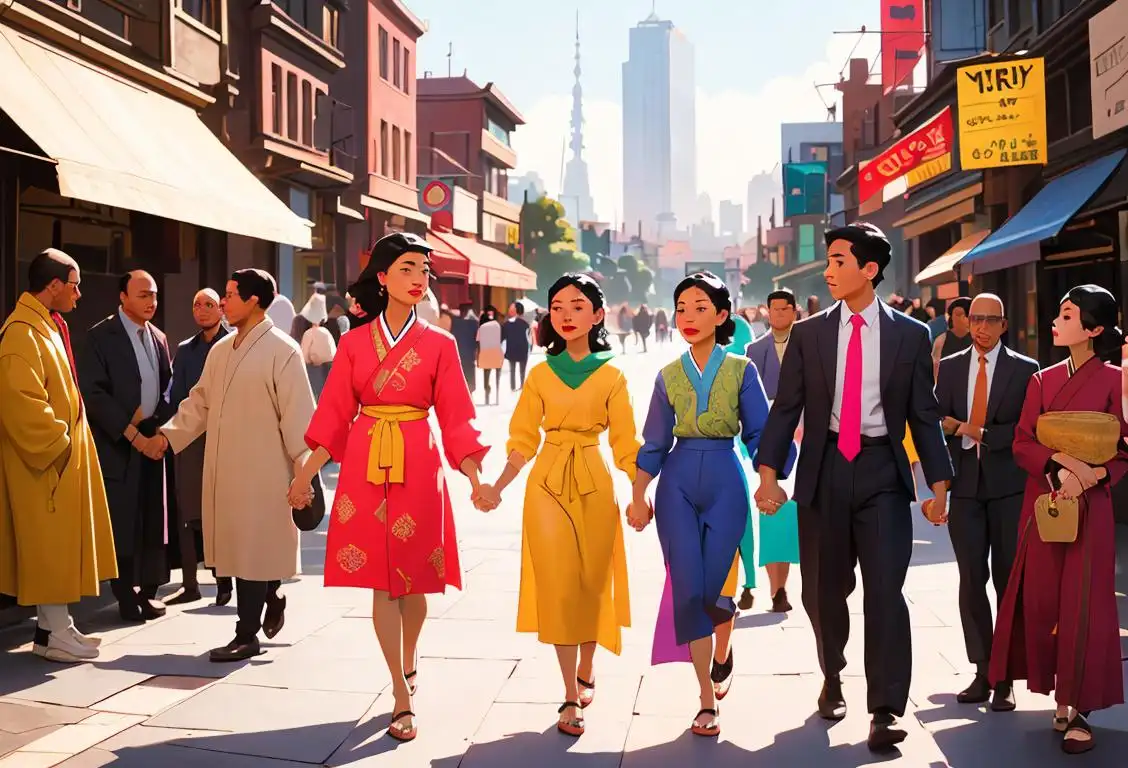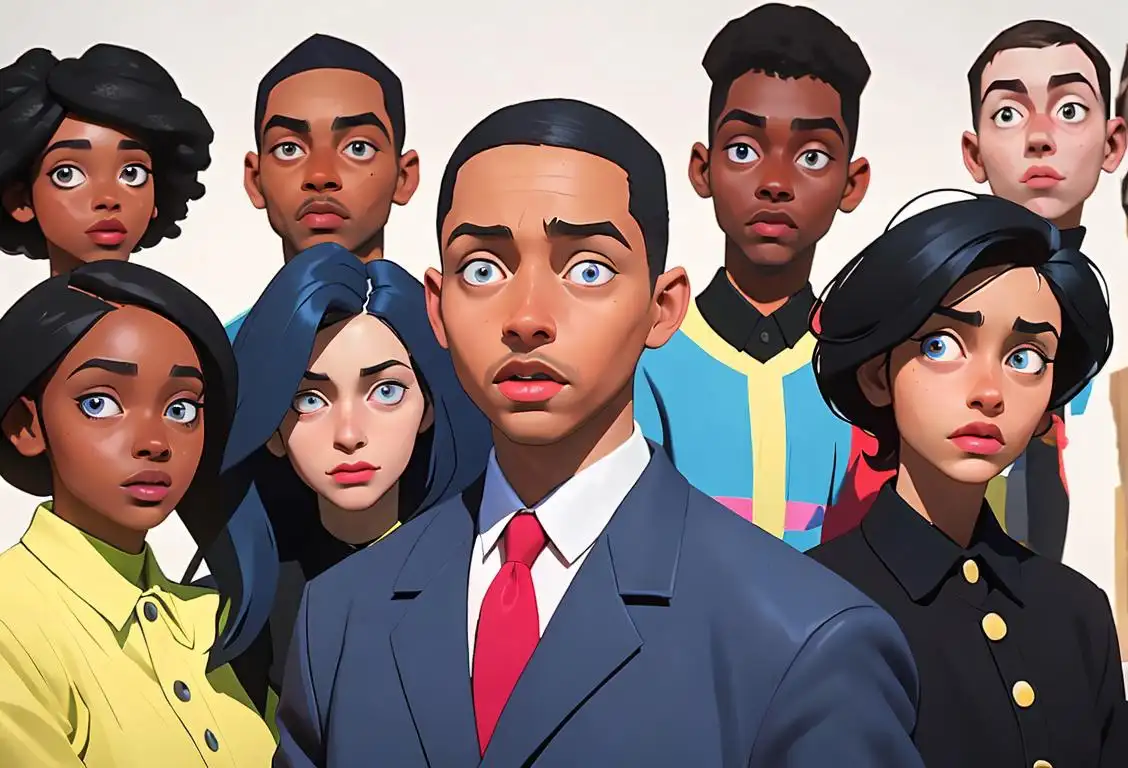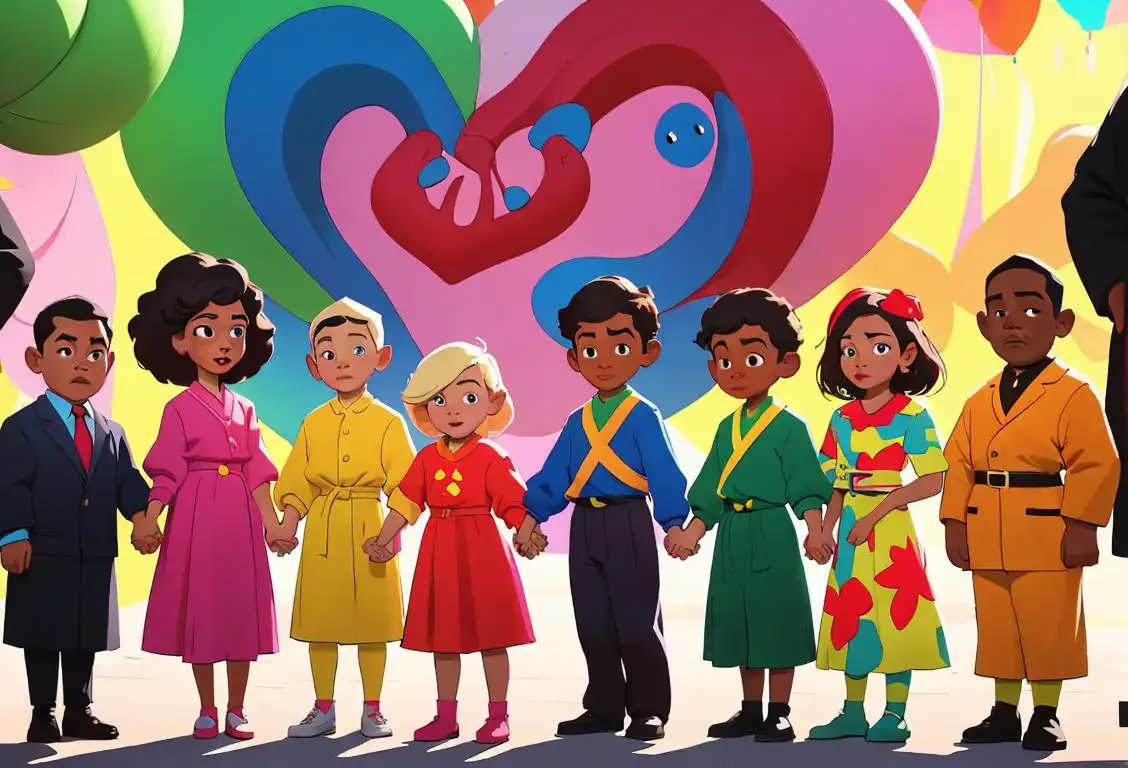National Intersectional Day
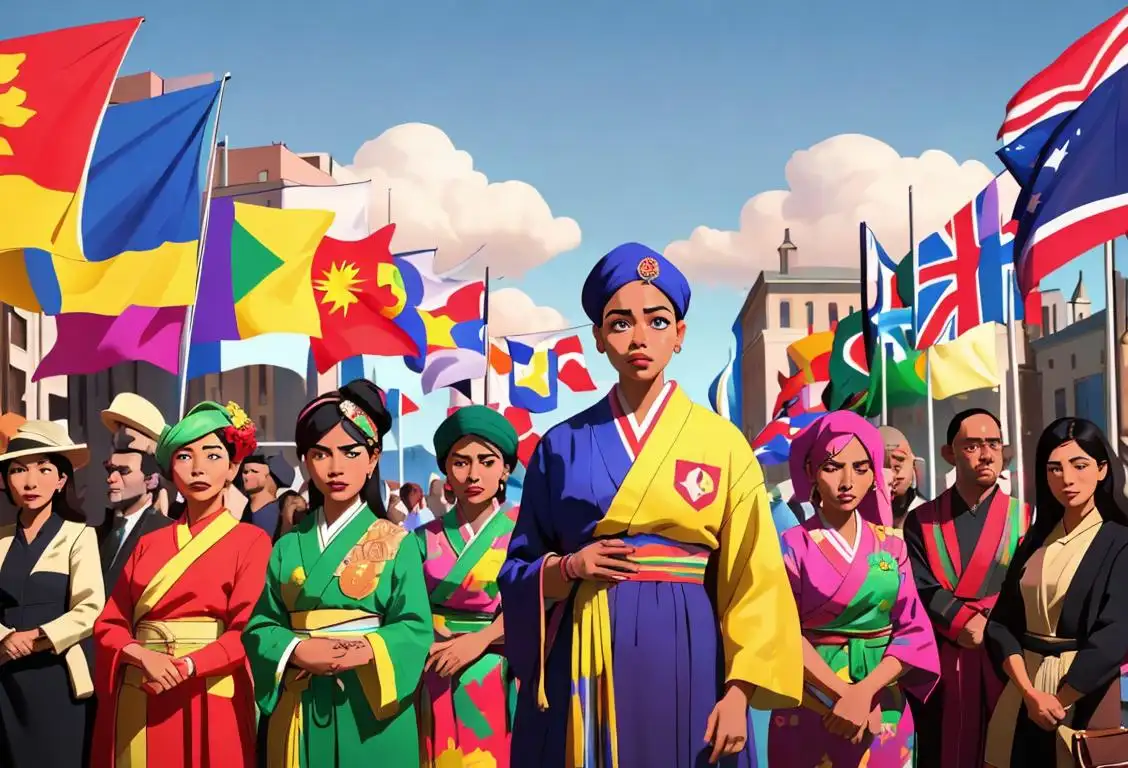
Hey there, folks! National Intersectional Day is a fantastic occasion that celebrates the beautiful diversity in our world. It's a day to recognize and appreciate the intersecting aspects of our identities and the unique challenges faced by individuals who belong to multiple marginalized communities. So, grab a cup of tea, sit back, and let's learn all about the internet and actual national history of this marvelous day!
When is Intersectional Day?
It's national intersectional day on the 27th April.
The Internet Buzz
Back on April 27, 2016, National Intersectional Day gained quite the attention online. With 16 mentions scattered across various platforms, people were buzzing about this inclusive celebration. It quickly became a trending topic on social media, with folks sharing their personal stories and voicing their support.
What is Intersectionality?
Intersectionality is not just a fancy word you throw around to impress your friends at dinner parties. It's a critical concept coined by Kimberlé Crenshaw, a civil rights advocate and professor. This framework acknowledges that our various social identities, such as race, gender, sexuality, disability, and class, interconnect and influence the way we experience the world.
Intersectionality recognizes that we can't address social issues by focusing solely on one aspect of a person's identity. We must consider the intersection of multiple identities and how they intersect with systems of oppression and privilege.
Celebrating National Intersectional Day
National Intersectional Day is a time to appreciate the beauty and complexity of our diverse world. It's a day to celebrate the achievements of individuals who navigate intersecting identities with grace and strength. It's also an opportunity for education and awareness about the challenges faced by marginalized communities.
On this day, take a moment to listen to the experiences of others, amplify their voices, and challenge the systems that perpetuate discrimination. Engage in discussions about intersectionality and learn how to be a strong ally to those who face intersecting forms of oppression.
History behind the term 'Intersectional'
1989
Term 'intersectionality' Coined
The term 'intersectionality' was coined by Kimberlé Crenshaw, a law professor and scholar, in her influential paper titled 'Demarginalizing the Intersection of Race and Sex: A Black Feminist Critique of Antidiscrimination Doctrine, Feminist Theory and Antiracist Politics.' Crenshaw introduced the term as a way to describe how different forms of oppression, such as racism and sexism, intersect and overlap in the lived experiences of marginalized individuals. She highlighted the need to address these intersecting systems of inequality to create a more comprehensive understanding of discrimination and injustice.
1991
Intersectionality Gains Academic Recognition
The concept of intersectionality gained widespread recognition within academic circles. Scholars across disciplines, particularly in feminist theory, critical race theory, and sociology, began exploring and applying the framework of intersectionality to their research. Intersectionality provided a new lens through which to understand social structures and power dynamics, emphasizing the interconnectedness of identity categories and the importance of considering multiple forms of oppression simultaneously.
2000s
Intersectionality Enters Mainstream Discourse
In the 2000s, the concept of intersectionality began to enter mainstream discussions. Activists, social justice advocates, and grassroots movements started using the term to address the complexities of systemic oppression and to advocate for more inclusive policies and practices. Intersectionality helped shed light on the ways in which race, gender, class, sexuality, and other identity markers intersect and shape people's experiences and opportunities.
2017
Intersectionality Influences Social Movements
Intersectionality gained considerable influence within various social movements, including feminism, LGBTQ+ rights, and racial justice movements. The framework assisted in acknowledging and addressing the unique struggles faced by individuals at the intersections of multiple marginalized identities. The Black Lives Matter movement, for example, incorporated intersectionality as a crucial aspect of their work, recognizing the interconnectedness of racial and gender oppression.
Present Day
Continued Impact and Critique
The concept of intersectionality continues to have a significant impact on activism, academia, and public discourse. It has propelled conversations about social inequality to consider the layered and complex nature of identity. However, intersectionality is not without its critiques. Some argue that the concept can be difficult to apply in practice or that it sometimes leads to the fragmentation of social justice movements. Nevertheless, intersectionality remains an essential tool for understanding and challenging systems of oppression.
Did you know?
Did you know that the concept of intersectionality embraces the idea that nobody fits into a single neat box? We are all beautifully complex creatures with layers upon layers of unique experiences and identities. So, embrace your intersectionality with pride!Tagged
awareness equality inclusionFirst identified
27th April 2016Most mentioned on
27th April 2016Total mentions
16Other days
Intersectional Day
Black People Day
Coming Day
Women And Girls In Sports Day
Latina Equal Pay Day
Freedom To Marry Day
Minority Rights Day
No Bra Day
Stephen Lawrence Day
Stand Up To Racism Day
